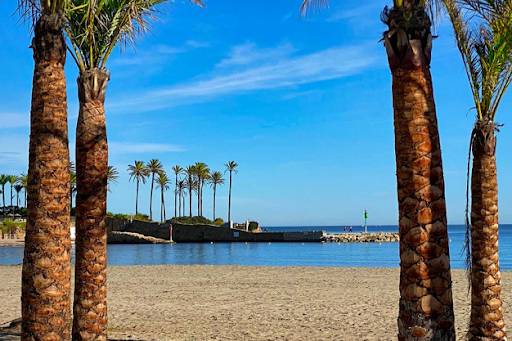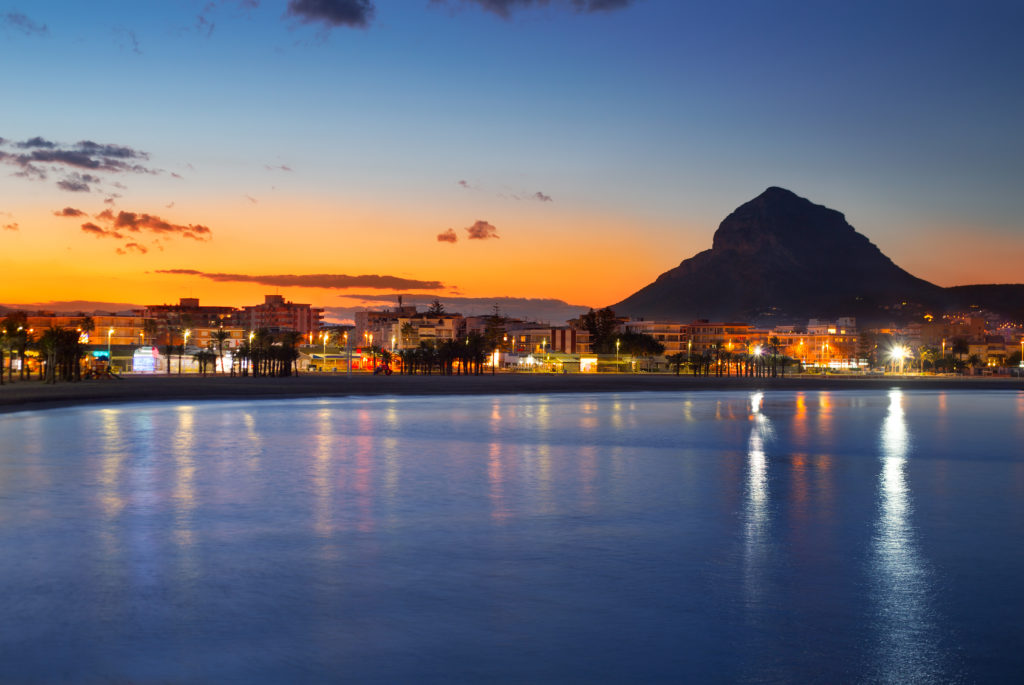Spain has long been a popular destination for property buyers, from retirees seeking a sunny haven to investors looking to capitalize on the country’s thriving tourism industry. With its rich culture, Mediterranean lifestyle, and relatively affordable real estate compared to other parts of Europe, Spain offers a compelling case for prospective buyers. But is 2025 shaping up to be a particularly good year to invest in Spanish property? Let’s explore the factors that could influence your decision.
The current state of the property market
The Spanish property market has experienced significant ups and downs over the past two decades. The 2008 financial crisis caused a dramatic crash in property prices, followed by a period of slow recovery. By the mid-2010s, the market was rebounding steadily, with prices increasing annually until the COVID-19 pandemic disrupted the trend in 2020.
In the years following the pandemic, Spain’s property market showed resilience. By 2023 and 2024, demand for homes, especially in coastal areas like Costa del Sol and urban hubs like Madrid and Barcelona, had picked up again. However, rising inflation and global economic uncertainties have introduced caution among buyers. As 2025 begins, market trends suggest moderate stability, with neither a significant boom nor a dramatic downturn on the horizon.
Key factors to consider in 2025
Several factors make 2025 a promising year to buy property in Spain, but potential buyers should carefully weigh the following considerations:
- Property Prices
While property prices in Spain have risen since the lows of the late 2000s, they remain relatively affordable compared to other European countries such as France, Germany, and the UK. According to industry analysts, 2025 is likely to see modest price growth in high-demand areas, making it an opportune time to buy before prices increase further. Buyers looking for bargains may still find them in less-touristic inland regions. - Interest Rates
The European Central Bank (ECB) has been gradually increasing interest rates since 2022 to combat inflation. As of 2025, mortgage rates in Spain are higher than they were a few years ago, but they remain manageable compared to historical averages. Prospective buyers should shop around for competitive mortgage deals and consider locking in fixed-rate mortgages to hedge against further rate increases. - Rental Market Opportunities
Spain’s tourism sector is booming once again, with record numbers of international visitors expected in 2025. This makes short-term rental properties in tourist hotspots an attractive investment. Platforms like Airbnb remain popular, though prospective landlords should be aware of local regulations, as some regions have introduced stricter rules on short-term rentals. - Regional Variations
Spain’s property market is highly regional. Coastal areas such as Costa Blanca, Costa Brava, and the Balearic Islands remain perennial favorites among international buyers. Urban centers like Madrid and Barcelona attract those seeking a mix of cultural richness and investment potential. On the other hand, rural and inland areas, such as Extremadura and parts of Andalusia, offer lower prices and opportunities for those seeking a more tranquil lifestyle. - Legal and Tax Considerations
Spain’s property-buying process can be complex, especially for foreign buyers. Legal fees, taxes, and other transaction costs can add up to 10-15% of the property’s purchase price. Additionally, Spain’s residency rules for non-EU citizens—including post-Brexit British buyers—have become more stringent.
Top 5 Areas to Buy Property in Spain in 2025
Spain’s diverse regions offer unique opportunities for property buyers. Here are five of the top areas to consider in 2025:
- Javea (Costa Blanca)
Javea, located on the Costa Blanca, is a picturesque town known for its stunning beaches, charming old town, and lively expat community. It is particularly popular with British, German, and Dutch buyers. The area boasts excellent infrastructure, international schools, and a range of luxury villas and apartments. Javea’s property market is considered stable, with good rental income potential due to its year-round appeal as both a holiday destination and a permanent residence. - Costa del Sol
This iconic region in southern Spain remains a top choice for property buyers, thanks to its sunny climate, golf courses, and vibrant nightlife. Marbella and Estepona are standout locations, offering a mix of high-end properties and more affordable options. The Costa del Sol is ideal for investors looking for short-term rental opportunities, as the area attracts millions of tourists annually. - Valencia
Valencia, Spain’s third-largest city, is increasingly popular among both investors and lifestyle buyers. Known for its blend of modern and historic architecture, beautiful beaches, and a thriving cultural scene, Valencia offers excellent value for money compared to Madrid and Barcelona. The city’s strong rental market and urban development projects make it a promising investment location. - Mallorca (Balearic Islands)
Mallorca is a perennial favorite among luxury property buyers. The island offers breathtaking landscapes, upscale amenities, and a strong rental market. Areas such as Palma, Pollensa, and Andratx are particularly sought after. While prices are higher than in mainland Spain, Mallorca’s exclusivity and strong demand make it a solid investment. - Seville (Andalusia)
Seville is a cultural gem with its historic landmarks, vibrant festivals, and traditional Andalusian charm. The city’s property market offers affordable options compared to coastal regions, making it attractive to buyers seeking a blend of culture and value. Seville’s growing popularity among digital nomads has also boosted demand for rental properties.
Reasons to Buy in 2025
Growing Demand: Spain’s appeal as a lifestyle and investment destination shows no signs of waning. The combination of pleasant climate, modern infrastructure, and high-quality healthcare makes it a magnet for retirees and remote workers alike.
Stable Economy: Spain’s economy is expected to grow steadily in 2025, fostering a favorable environment for real estate investments. Government incentives and urban development projects in cities like Valencia and Malaga are also boosting local markets.
Diverse Opportunities: Whether you’re seeking a holiday home, a buy-to-let property, or a permanent residence, Spain offers diverse options to suit different needs and budgets.
Enhanced Digital Nomad Visas: The Spanish government has introduced digital nomad visas in recent years, enabling remote workers from outside the EU to live and work in Spain while enjoying a lower cost of living and an excellent quality of life. This has increased demand for rental properties in urban hubs and attractive regions.
Infrastructure Improvements: Investments in public infrastructure, such as transport networks and green energy initiatives, are making certain regions more accessible and appealing to buyers.
Challenges to Keep in Mind
Economic Uncertainty: While Spain’s economy is stable, global uncertainties, such as geopolitical tensions and energy costs, could have an indirect impact on the property market.
Regulatory Changes: Buyers should stay informed about local property laws and tax regulations, which can vary significantly by region. For example, some cities have introduced caps on short-term rental licenses to address housing shortages for locals.
Currency Fluctuations: Non-eurozone buyers, such as those from the UK or the US, need to factor in exchange rate risks, which can affect the overall cost of buying and maintaining a property in Spain.
Climate and Environmental Concerns: Certain regions in Spain are increasingly vulnerable to environmental challenges such as droughts, wildfires, or rising sea levels. Buyers should consider the long-term sustainability of their chosen location.
Tips for Prospective Buyers in 2025
Do Your Research: Use online tools and local agents to understand the property market in your preferred region. Compare prices and trends to ensure you’re making an informed decision.
Seek Legal Advice: Work with a reputable lawyer who specializes in Spanish property law to navigate legal complexities and avoid potential pitfalls.
Consider Long-Term Plans: Whether you’re buying as an investment, a vacation home, or a permanent residence, align your purchase with your long-term goals.
Negotiate: Spanish property markets often allow room for negotiation, especially in less competitive areas. Don’t hesitate to make offers below the asking price.
Conclusion
For many, 2025 presents an excellent opportunity to buy property in Spain. The market offers stability, potential for growth, and opportunities for rental income, especially in high-demand areas. However, buyers should approach their investment with due diligence, considering factors like regional differences, financing costs, and legal complexities. Working with reputable local agents, lawyers, and financial advisors can help ensure a smooth and successful transaction.
Whether you’re looking for a dream vacation home or a savvy investment, Spain in 2025 could very well be the right choice for your property ambitions. By staying informed and proactive, you can make the most of this exciting opportunity.




